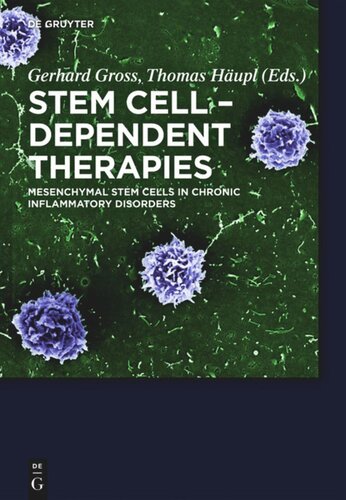

Most ebook files are in PDF format, so you can easily read them using various software such as Foxit Reader or directly on the Google Chrome browser.
Some ebook files are released by publishers in other formats such as .awz, .mobi, .epub, .fb2, etc. You may need to install specific software to read these formats on mobile/PC, such as Calibre.
Please read the tutorial at this link: https://ebookbell.com/faq
We offer FREE conversion to the popular formats you request; however, this may take some time. Therefore, right after payment, please email us, and we will try to provide the service as quickly as possible.
For some exceptional file formats or broken links (if any), please refrain from opening any disputes. Instead, email us first, and we will try to assist within a maximum of 6 hours.
EbookBell Team

4.4
12 reviewsMultipotent mesenchymal stem cells (MSCs) are a heterogeneous population of cells which reside in a variety of tissues. They differentiate into several mesodermal lineages, secrete a multitude of trophic factors and contribute to tissue homeostasis. MSCs are able to exert immunosuppressive activities by interfering with inflammatory cytokine production and with T- and B-cell proliferation. These immunomodulating properties make MSCs promising candidates for the treatment of chronic inflammatory and autoimmune disorders. There are, however, certain caveats involved including inappropriate migration of cells in the body, immune rejection, tumor formation, or graft versus host disease (GvHD).
This book investigates the current state of the MSC-dependent therapy of chronic inflammatory disorders and autoimmune diseases. Among the covered topics are GvHD, chronic kidney, liver and lung disease, ischemic heart and inflammatory bowel disease, diabetes, osteoarthritis, various rheumatic and neurological disorders and, lastly, tumors and solid organ transplantations. This book also questions the immunoprivileged status of MSCs, discusses the therapeutic role of MSCs in experimental animal disease models and their translation to the corresponding human disorders, envisions a role for MSCs in tumor interventions and, lastly, describes a systems biology approach for stem cells and inflammation.